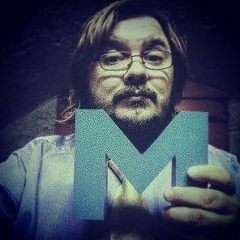Согласно родовым традициям славян, Веста – это девушка, обученная всем премудростям замужества, т.е. ведающая/знающая, в будущем заботливая мать, хорошая хозяйка, верная, мудрая и любящая жена. Только после приобретения девушкой таких знаний у нее был шанс стать женой. НЕвест замуж не брали, а если брали, то такое дело называли браком. Не секрет, что целостность, атмосфера и счастье в семье почти полностью зависит от женщины. У Весты не может быть плохого мужа, потому что она мудра. Вероятнее всего, древние славяне даже не знали, что такое развод…
БРАК – у древних славян этот обряд назывался священный супружеский союз… Свадьба расшифровывается как СВА – небо, БО — боги, ДЕ – деяние… А в целом –Небесное Деяние Богов… Брак придумали христиане… Славяне его трактуют так, что кто-то из вступающих в этот союз – с браком – до свадьбы имел «контакт» с другими…
«Брак» от ар. «КАРБ» – «породнение», когда особи разных полов становятся родственниками (акриба) через совместный плод. Славянское «брак» – от «брать», т.е. взять за себя женщину другого рода. И в тоже время, говорят: «брак хорошим дело не назовут..,почему.., БРАК» производственный от арабского «ХАРАБ» –«разрушить, испортить»…, А немецкое «брак» означает «сломанная вещь» … все эти заморочки с венчанием, фатой, кольцами, и пр. пришло из Иудеи, позже, после возникновения христианства, обычай этот пришел на Русь. Прежде у нас все было намного проще: какую девку поймаешь в лесу, та и твоя. Так вот, на иврите«благословение» – браха. Вот вам и брак. Есть и др. мнение: «брать», а также«брань» (изначально – поход за добычей, а один из броских «образов» добычи в древности – это девушки, потенциальные жёны) естественнее сблизить с обсуждаемым словом. Кстати, слово «бранка» означало когда-то «пленница». Вместе с тем я не исключаю, что термин «брак» связан ещё и со словом «БРемя», и если так, то здесь просматривается аналогия с ивритом: «נישואים» («нисуим», арам. форма «нисуиН») —«брак», и корень тут тот же, что в слове «לשאת» («ласэт») – «нести» («носэ», «נושא»– «несу, несешь, несет»). Соответственно, состоящий в браке – «נשוי», «насуй» (ж. р.«נשוא», «нэсуА»), т. е. как бы «обремененный».., ну, а раз бремя и обремененный, значит и нести его должны оба супруга, со всеми вытекающими отсюда последствиями…
Многие слова, которые издревле служили нам защитой и определенным табу, исковерканы и вывернуты на изнанку, подменены чужеродными. Потому, возможно и быт наш с некоторых пор не устроен и жизнь дискомфортна. Мы потеряли гармонию не только в понимании Себя, но в первую очередь в определении других, происходящего вокруг нас в целом. Опять же будем искать виноватых, порождая смуту и становясь все слабее, или, попытаемся самостоятельно исправить ситуацию, жить и говорить так, как завещали нам Наши Предки – Законы и Правила которых до сих пор являются безупречными, потому как руководствовались ПРАВЬю и СОВЕСТЬю. А главное, –ЛЮБОВЬю к Матушке-Земле Своей…
И не удивительно, что сегодня по статистике распадается чуть ли не каждая вторая семья. Ведь вступают в БРАК с неВестой…
БРАК – у древних славян этот обряд назывался священный супружеский союз… Свадьба расшифровывается как СВА – небо, БО — боги, ДЕ – деяние… А в целом –Небесное Деяние Богов… Брак придумали христиане… Славяне его трактуют так, что кто-то из вступающих в этот союз – с браком – до свадьбы имел «контакт» с другими…
«Брак» от ар. «КАРБ» – «породнение», когда особи разных полов становятся родственниками (акриба) через совместный плод. Славянское «брак» – от «брать», т.е. взять за себя женщину другого рода. И в тоже время, говорят: «брак хорошим дело не назовут..,почему.., БРАК» производственный от арабского «ХАРАБ» –«разрушить, испортить»…, А немецкое «брак» означает «сломанная вещь» … все эти заморочки с венчанием, фатой, кольцами, и пр. пришло из Иудеи, позже, после возникновения христианства, обычай этот пришел на Русь. Прежде у нас все было намного проще: какую девку поймаешь в лесу, та и твоя. Так вот, на иврите«благословение» – браха. Вот вам и брак. Есть и др. мнение: «брать», а также«брань» (изначально – поход за добычей, а один из броских «образов» добычи в древности – это девушки, потенциальные жёны) естественнее сблизить с обсуждаемым словом. Кстати, слово «бранка» означало когда-то «пленница». Вместе с тем я не исключаю, что термин «брак» связан ещё и со словом «БРемя», и если так, то здесь просматривается аналогия с ивритом: «נישואים» («нисуим», арам. форма «нисуиН») —«брак», и корень тут тот же, что в слове «לשאת» («ласэт») – «нести» («носэ», «נושא»– «несу, несешь, несет»). Соответственно, состоящий в браке – «נשוי», «насуй» (ж. р.«נשוא», «нэсуА»), т. е. как бы «обремененный».., ну, а раз бремя и обремененный, значит и нести его должны оба супруга, со всеми вытекающими отсюда последствиями…
Многие слова, которые издревле служили нам защитой и определенным табу, исковерканы и вывернуты на изнанку, подменены чужеродными. Потому, возможно и быт наш с некоторых пор не устроен и жизнь дискомфортна. Мы потеряли гармонию не только в понимании Себя, но в первую очередь в определении других, происходящего вокруг нас в целом. Опять же будем искать виноватых, порождая смуту и становясь все слабее, или, попытаемся самостоятельно исправить ситуацию, жить и говорить так, как завещали нам Наши Предки – Законы и Правила которых до сих пор являются безупречными, потому как руководствовались ПРАВЬю и СОВЕСТЬю. А главное, –ЛЮБОВЬю к Матушке-Земле Своей…
И не удивительно, что сегодня по статистике распадается чуть ли не каждая вторая семья. Ведь вступают в БРАК с неВестой…
According to the tribal traditions of the Slavs, Vesta is a girl trained in all the wisdom of marriage, i.e. knowledgeable / knowledgeable, caring mother in the future, good housewife, faithful, wise and loving wife. Only after the girl acquired such knowledge did she have a chance to become a wife. They didn’t take the bride to marry, and if they did, then they called such a thing marriage. It is no secret that the integrity, atmosphere and happiness in the family are almost entirely dependent on the woman. Vesta cannot have a bad husband because she is wise. Most likely, the ancient Slavs did not even know what a divorce was ...
MARRIAGE - among the ancient Slavs this rite was called the sacred marital union ... The wedding stands for NEA - heaven, BO - gods, DE - act ... But in general, the Heavenly Act of the Gods ... Christians invented marriage ... The Slavs interpret it so that some of those entering in this union - with marriage - before the wedding he had "contact" with others ...
“Marriage” from ar. "CARB" - "twinning", when individuals of different sexes become relatives (acrib) through a joint fetus. Slavic “marriage” - from “take”, i.e. take a woman of a different kind for herself. And at the same time, they say: “marriage cannot be called good .. why .., MARRIAGE” production from the Arabic “HARAB” - “destroy, ruin” ..., And German “marriage” means “a broken thing” ... all these troubles with a wedding, veil, rings, etc. came from Judea, later, after the emergence of Christianity, this custom came to Russia. Before, everything was much simpler for us: what girl you catch in the forest, that and yours. So, in Hebrew, “blessing” is a brah. So much for the marriage. There is another opinion: “take”, as well as “abuse” (originally a campaign for prey, and one of the catchy “images” of prey in antiquity is girls, potential wives), it is more natural to draw closer to the word under discussion. By the way, the word "branca" once meant "captive." However, I do not exclude that the term “marriage” is also associated with the word “Bremen”, and if so, then an analogy with Hebrew is seen here: “נישואים” (“nisuim”, aram. Form “nisui”) - “marriage” ”, And the root here is the same as in the word“ לשאת ”(“ laset ”) -“ bear ”(“ nose ”,“ נושא ”-“ bear, bear, bear ”). Correspondingly, the married person is נשוי, “poke” (f. «וא, nesuA), that is, as if “encumbered” .., well, since the burden is also encumbered, it means to bear both spouses owe him, with all the ensuing consequences ...
Many of the words that since ancient times served us as protection and certain taboos are distorted and turned inside out, replaced by alien ones. Therefore, it is possible that our life has not been arranged for some time and life is uncomfortable. We have lost harmony not only in our understanding of Myself, but primarily in the definition of others happening around us as a whole. Again, we will look for the guilty, creating confusion and becoming weaker, or, we will try to independently correct the situation, live and speak as our Ancestors have bequeathed to us - the Laws and Rules of which are still impeccable, because they were guided by RIGHT and CONSCIENCE. And most importantly, LOVE for Mother Earth ...
And it is not surprising that today, according to statistics, almost every second family breaks up. After all, they enter into MARRIAGE with the Bride ...
MARRIAGE - among the ancient Slavs this rite was called the sacred marital union ... The wedding stands for NEA - heaven, BO - gods, DE - act ... But in general, the Heavenly Act of the Gods ... Christians invented marriage ... The Slavs interpret it so that some of those entering in this union - with marriage - before the wedding he had "contact" with others ...
“Marriage” from ar. "CARB" - "twinning", when individuals of different sexes become relatives (acrib) through a joint fetus. Slavic “marriage” - from “take”, i.e. take a woman of a different kind for herself. And at the same time, they say: “marriage cannot be called good .. why .., MARRIAGE” production from the Arabic “HARAB” - “destroy, ruin” ..., And German “marriage” means “a broken thing” ... all these troubles with a wedding, veil, rings, etc. came from Judea, later, after the emergence of Christianity, this custom came to Russia. Before, everything was much simpler for us: what girl you catch in the forest, that and yours. So, in Hebrew, “blessing” is a brah. So much for the marriage. There is another opinion: “take”, as well as “abuse” (originally a campaign for prey, and one of the catchy “images” of prey in antiquity is girls, potential wives), it is more natural to draw closer to the word under discussion. By the way, the word "branca" once meant "captive." However, I do not exclude that the term “marriage” is also associated with the word “Bremen”, and if so, then an analogy with Hebrew is seen here: “נישואים” (“nisuim”, aram. Form “nisui”) - “marriage” ”, And the root here is the same as in the word“ לשאת ”(“ laset ”) -“ bear ”(“ nose ”,“ נושא ”-“ bear, bear, bear ”). Correspondingly, the married person is נשוי, “poke” (f. «וא, nesuA), that is, as if “encumbered” .., well, since the burden is also encumbered, it means to bear both spouses owe him, with all the ensuing consequences ...
Many of the words that since ancient times served us as protection and certain taboos are distorted and turned inside out, replaced by alien ones. Therefore, it is possible that our life has not been arranged for some time and life is uncomfortable. We have lost harmony not only in our understanding of Myself, but primarily in the definition of others happening around us as a whole. Again, we will look for the guilty, creating confusion and becoming weaker, or, we will try to independently correct the situation, live and speak as our Ancestors have bequeathed to us - the Laws and Rules of which are still impeccable, because they were guided by RIGHT and CONSCIENCE. And most importantly, LOVE for Mother Earth ...
And it is not surprising that today, according to statistics, almost every second family breaks up. After all, they enter into MARRIAGE with the Bride ...

У записи 22 лайков,
5 репостов,
1095 просмотров.
5 репостов,
1095 просмотров.
Эту запись оставил(а) на своей стене Наталья Лукьянова









































